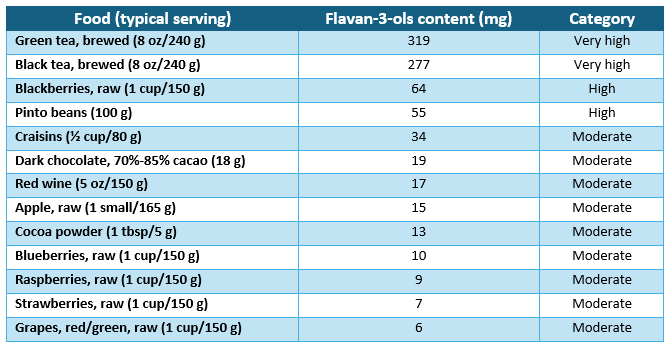
Published August 14, 2025
Morning Report — Not Your Typical Medical Newsletter
We get it, you see a lot of medical newsletters, so hear us out. Once a month, we’ll highlight important medical news sprinkled with witty commentary, fun facts, giveaways, and more… because learning should be fun! Subscribe to receive the Morning Report directly.

|
Good morning! Let’s rewind to 1912, when physicians were debating not AI but nomenclature. Biochemist Casimir Funk coined the term “vitamines” to capture the vital role and supposed amine chemistry of these micronutrients. But critics pounced, noting not all vitamines contain amines. Funk lopped off the “e,” and the name stuck, despite grumbling dissent. His retort: “A badly chosen catchword, like a folksong without feeling, can never become popular.” But then the real trouble began. After vitamins A through E took their alphabetical assignment, disorder set in. Vitamin B ballooned to 12 subtypes before settling on a numerically scrambled eight. Vitamin K ignored the alphabet and borrowed its letter from the German koagulation. The rest? A parade of reclassified or phantom vitamins—F through J, plus M, P, and the punchline “PP.” It was the messiest rollout until the two-letter state abbreviation (see Gary Gulman’s blistering account). |
New Colonoscopy Prep Guidelines—A Movement in the Right Direction?
GI GIST
Colonoscopy attendance rivals that of a high school reunion—plenty of “I’ll be there!” before only the yearbook committee and the guy recalling his 40-yard-dash time show up. Between dread, logistics, and the urban legend of bowel prep, nearly half of eligible adults skip the procedure. But fresh guidelines try to lure them back by shifting the prep ordeal from survival-show challenge to a mildly inconvenient Tuesday.
Task force puts punishing bowel prep in the rear view—for some
The American College of Gastroenterology, American Gastroenterological Association, and American Society for Gastrointestinal Endoscopy banded together to deliver their first overhaul of colonoscopy prep guidelines since 2014. And average-risk patients are going to like it. Dietary changes now start only the day before—low-fiber or clear-liquid meals for breakfast and lunch, capped with a clear-liquid dinner. And the dreaded 4-liter chug has been downsized to a 2-liter split dose (night before, then morning of)—so the taste will haunt patients for only half as long. Patients with afternoon appointments can tackle the entire prep in a single day. Additionally, the task force suggests adding oral simethicone to give doctors a clearer view.
Patients at higher risk for inadequate prep—including those with chronic constipation, slowed gut motility, or conditions such as cirrhosis, Parkinson disease, dementia, or diabetes—still face a stricter routine. Their regimen starts three days in advance, with tighter dietary limits, larger prep volumes, and boosters like bisacodyl to thoroughly flush the colon.
Key takeaways
The task force insists the new regimen goes down easier for average-risk patients without sacrificing colon clarity. The guideline authors wager that the looser rules will push prep success rates higher—ideally to 90% (up from 85% in 2014). They’re calling on GIs to track adequate and inadequate prep, along with “no shows.” For the GIs’ tallying purposes, “adequate” means a colon clear enough for them to confidently decide when the patient needs their next screening—a “you’ll know it when you see it” thing.
For more education on colorectal cancer, check out this CME activity: Don’t Miss the Red Flags for Early-Onset Colorectal Cancer - Frankly Speaking Ep 411
Guideline Updates and FDA Approvals
|
|
- The American Academy of Pediatrics releases its own evidence-based immunization schedule
- 2025 AHA/ACC/AANP/AAPA/ABC/ACCP/ACPM/AGS/AMA/ASPC/NMA/ PCNA/SGIM Guideline for the Prevention, Detection, Evaluation, and Management of High Blood Pressure in Adults: A Report of the American College of Cardiology/American Heart Association Joint Committee on Clinical Practice Guidelines
- Primary Aldosteronism: An Endocrine Society Clinical Practice Guideline
- FDA approves first-in-class drug for fibromyalgia
- FDA approves fall Covid shots, but with new restrictions
- FDA approves treatment for serious liver disease known as ‘MASH’
Lithium Delivers an Element of Surprise in Dementia Research
NEURO NEWS
|
For decades, lithium has been the darling of grunge anthems and psychiatric prescriptions—but now, researchers suggest it may hold a missing piece of the Alzheimer disease puzzle. They’ve shown this trace element is naturally present in the body and very much needed—like iron, vitamin C, and validation from internet strangers. And when levels run low, brain aging and neurodegeneration may accelerate. |
Of mice and metals
In a series of mouse studies with more cognitive swings than Flowers for Algernon, researchers found that lowering dietary lithium triggered inflammation, plaque buildup, and memory decline—especially in Alzheimer-model mice. In contrast, maintaining normal lithium levels steadied brain aging and protected against many of these hallmark changes.
But how does it work? The team found that β-amyloid plaques in the brain bind lithium and pull it from surrounding cells. Without enough available lithium, microglia—the brain’s cleanup crew—falter and toxic proteins build up. When the researchers compared different compounds, standard forms of lithium stuck to plaques, while lithium orotate avoided this problem, cut down plaques and tangles, and restored memory in Alzheimer-model mice.
Key takeaways
The potential role of lithium in cognitive protection is one of the most intriguing Alzheimer discoveries in recent memory. While the evidence looks shiny, it’s still early days. The results come only from mice, and lithium at higher doses can be toxic, making human trials essential before practice changes. For now, most lithium slips in through the diet—leafy greens, nuts, legumes, and some mineral waters. Many of these foods already link to lower dementia risk, and lithium may be one hidden reason why. Looking ahead, Dr. Kostas Lyketsos of Johns Hopkins speculates, “Is there a future in which lithium at a very low dose could supplement what seems to have been lost? Possibly… That will be the work of future studies.”
For more education on Alzheimer disease, check out this CME activity: Managing MCI and Alzheimer’s Disease in Primary Care
|
Have a Cup of Tea: Reducing Blood Pressure Without Medication—Flavan-3-Ols |
|
|
To learn more about this study, check out this Frankly Speaking about Family Medicine podcast.
|
|
Interested in more healthcare news? Here are some other articles we don’t want you to miss:
- Total and specific potato intake and risk of type 2 diabetes: results from three US cohort studies and a substitution meta-analysis of prospective cohorts
- First MAHA health report calls for reassessing medicines, processed foods, pesticides
- Breakthrough genetic study offers treatment hope for ME patients
- Obesity may come in 11 different types, each with their own cause
- Eating minimally processed meals doubles weight loss even when ultraprocessed foods are healthy, study finds
- Floss-based vaccination targets the gingival sulcus for mucosal and systemic immunization
- Lymph node-targeted, mKRAS-specific amphiphile vaccine in pancreatic and colorectal cancer: phase 1 AMPLIFY-201 trial final results
- First antidote for carbon monoxide poisoning “cleans” blood in minutes
|
Morning Report is written by:
Did You Enjoy This Issue of Morning Report? Absolutely! | For the most part | Not at all Click above, or share your feedback via email. Drop us an email at morningreport@pri-med.com to let us know how we’re doing.
Please note that the summaries in Morning Report are intended to provide clinicians with a brief overview of an article, and while we do our best to select the most salient points, we ask that you please read the full article linked in each summary for clarification before making any practice-changing decisions.
Enjoying Morning Report? Share It with Colleagues! Is Morning Report for you? It is if you’re someone who needs quick-hitting, accurate medical news—but with some flair. You don’t just need to know about the latest metabolism study—you also need to know how it parallels an Alanis Morissette hit. If you’re reading about acupuncture treatment, you need us to skip the needle puns and get straight to the point. We keep things simple, but when we do get into the scientific weeds, we always remind you to check for ticks. Subscribe to receive Morning Report directly in your inbox the first Saturday of every month.
|

